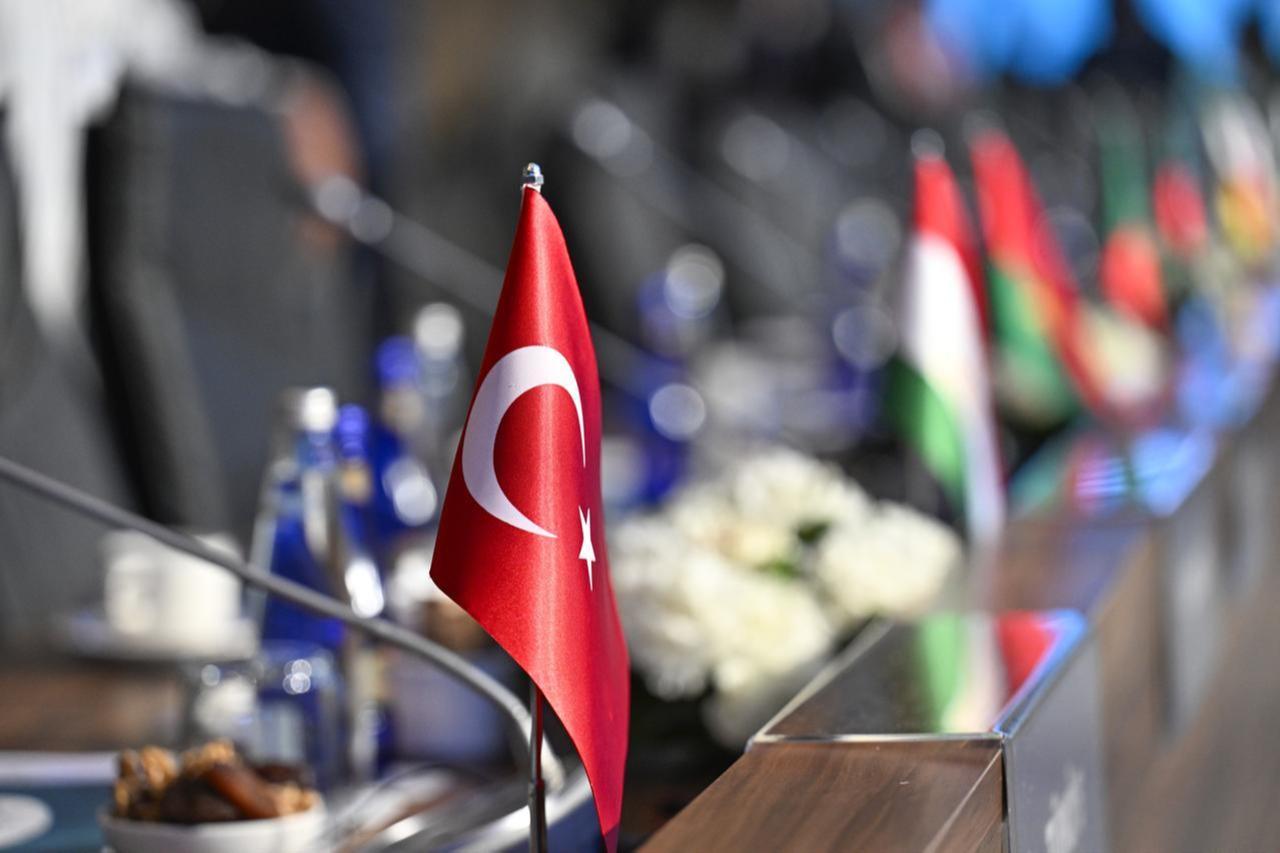
Türkiye will maintain its efforts to foster cooperation between the two communities on Cyprus, the Turkish Foreign Ministry said Friday following informal meetings on Cyprus held at U.N. headquarters in New York.
Speaking about the Wednesday and Thursday meetings, ministry spokesman Oncu Keceli said: "Türkiye will continue our efforts in good faith and in close consultation with the Turkish Cypriot side to promote a culture of cooperation between the two sides on the island."
The meetings reviewed progress in areas of cooperation agreed upon during a March gathering in Geneva, with advances made in several topics while others remained stalled.
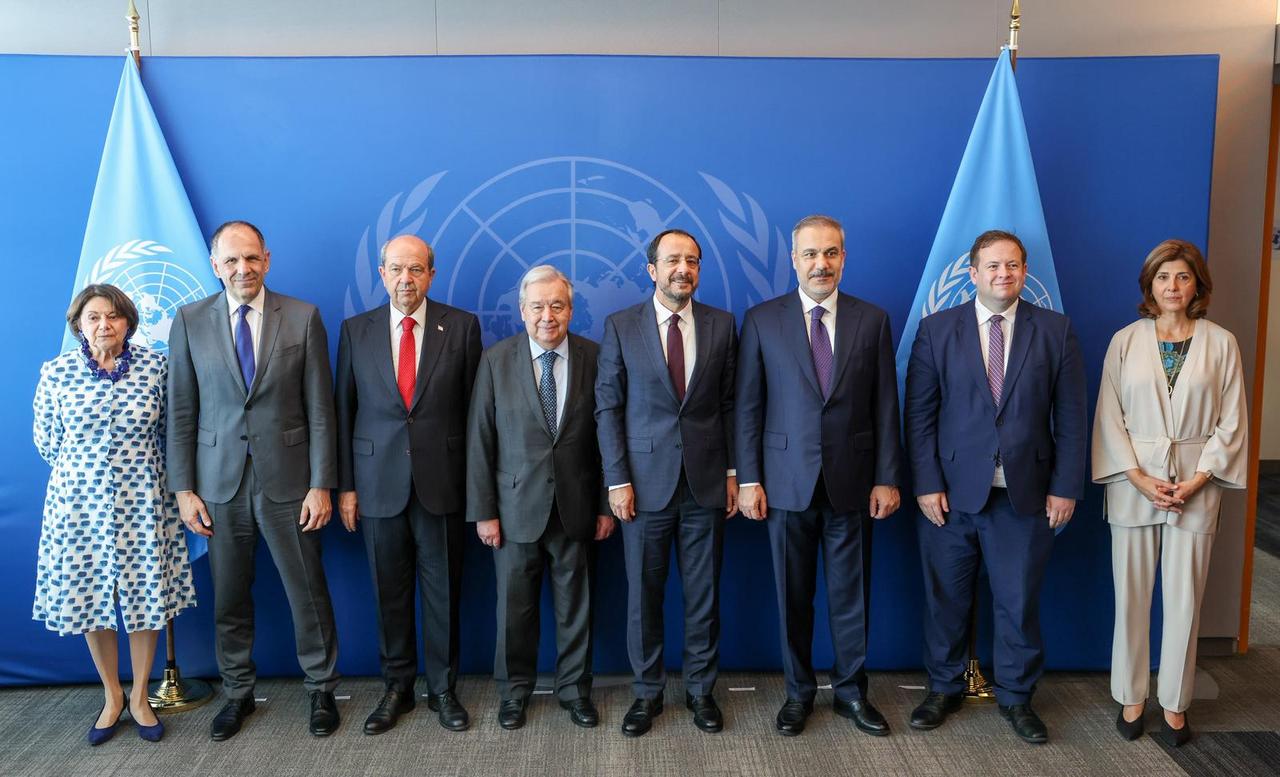
Keceli said progress was achieved in several areas, including the establishment of a technical committee on youth, restoration of cemeteries, and issues related to the environment and climate change.
He noted that the sides are very close to reaching an agreement that would allow demining efforts to begin, with only a few technical details remaining to be finalized.
"Türkiye took part in the New York meeting, as it did in the Geneva meeting in March, in close coordination and consultation with the Turkish Cyprus side, with the goal of taking meaningful steps to promote good neighborly relations between the two states on the island," Keceli said.
During the Geneva meeting, areas where cooperation could be developed for the benefit of both communities were discussed, and agreement was reached on six key topics.
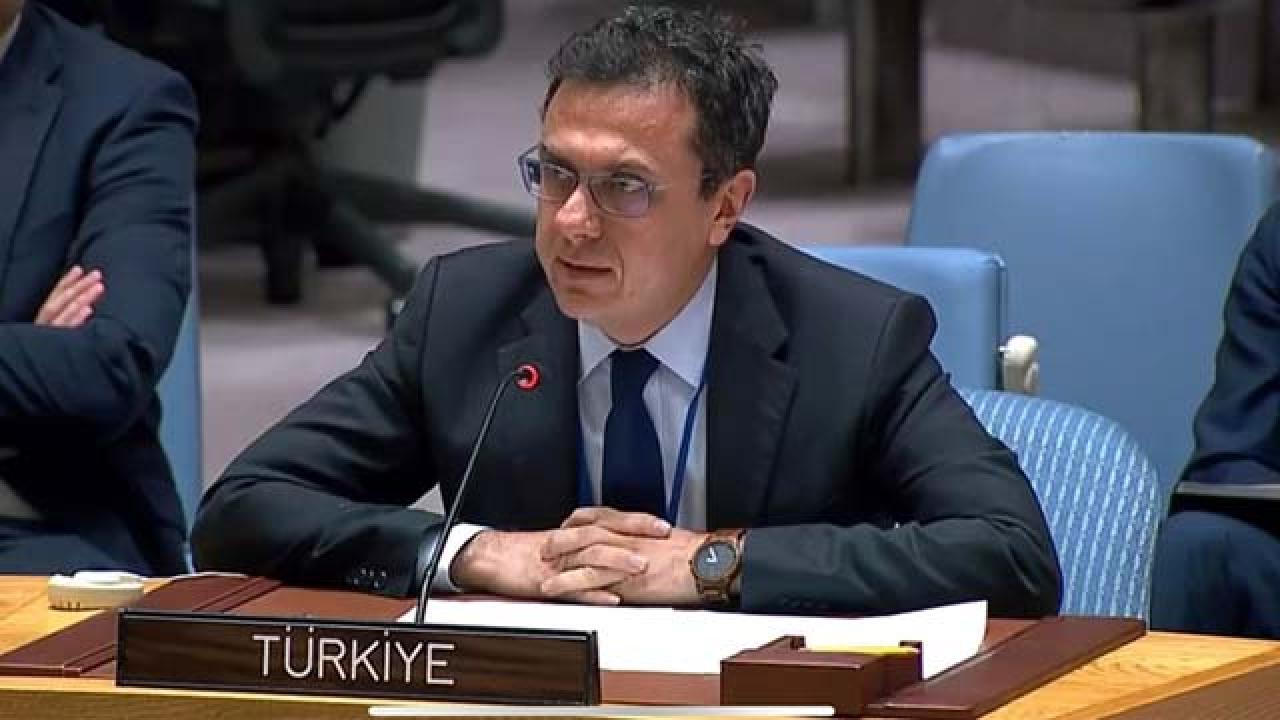
No progress was made on two other topics from March: the opening of four new border crossings and electricity production from solar energy in the buffer zone between the two countries, despite the U.N.'s full efforts and the constructive approach of the Turkish side.
"Although the Turkish side accepted the U.N.'s compromise proposal on border crossings with a goodwill approach, the Greek Cypriot side constantly introduced new conditions at every stage, failed to keep its word, and insistently revived previously rejected proposals. This made progress impossible," Keceli said.
"Likewise, the Greek Cypriot side's uncompromising stance has been the sole obstacle to progress in the area of solar energy production in the buffer zone," he added.
Keceli said negotiations on these two topics would continue with the support of U.N. Secretary-General Antonio Guterres's Cyprus envoy, Maria Angela Holguin Cuellar.
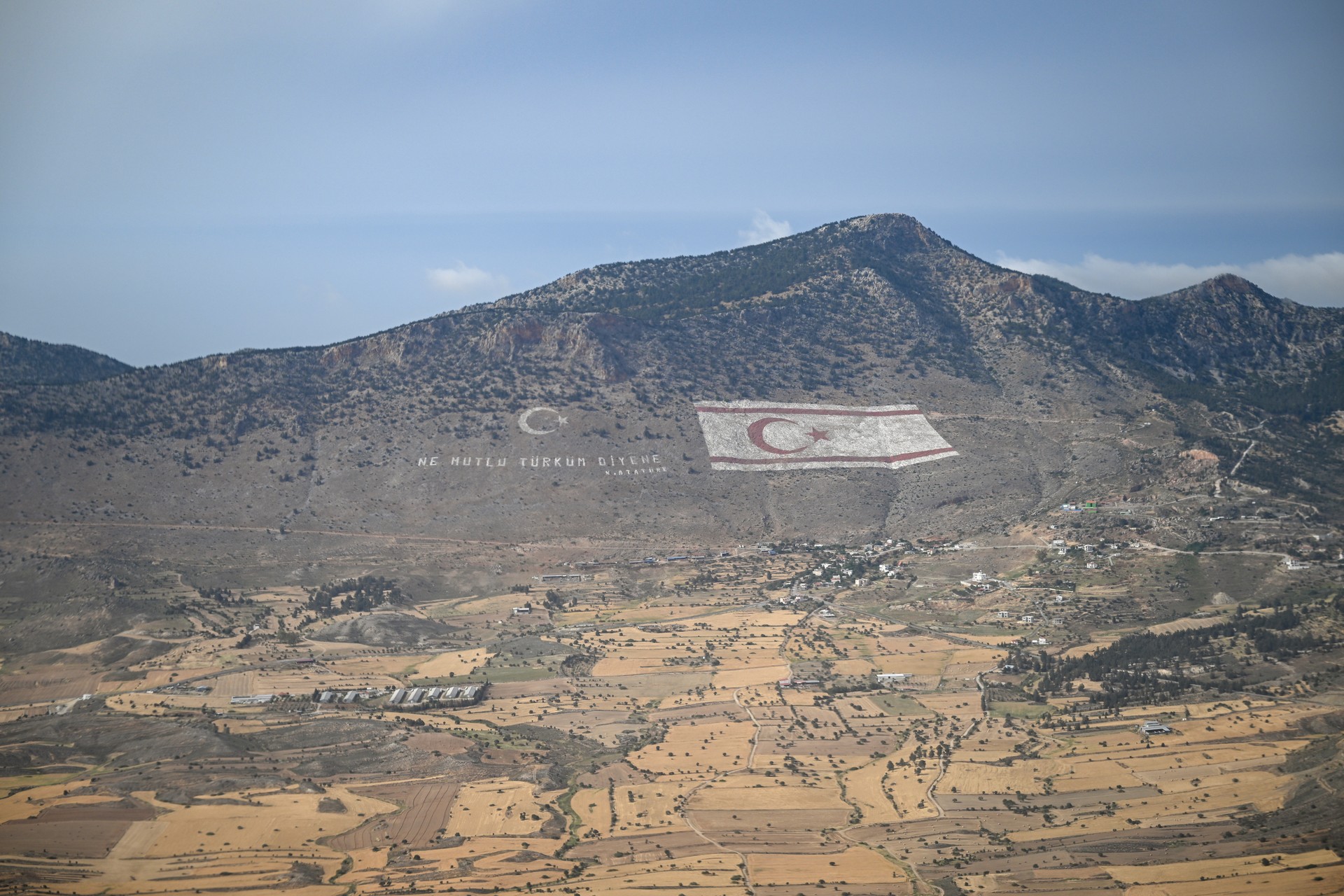
During the New York meeting, Turkish Republic of Northern Cyprus (TRNC) President Ersin Tatar and Greek Cypriot Administration leader Nikos Christodoulides agreed to work on four new areas of cooperation: establishing a consultative mechanism for civil society engagement, exchange of cultural artifacts, air quality management, and tackling microplastic pollution.
Talks on these topics will also be held on the island in the coming days, Keceli said.
"Reaching consensus on these four new areas of cooperation helps lay the groundwork for the kind of collaboration that the two neighboring states on the island will pursue in a post-settlement scenario," he added.
Keceli added that U.N. Secretary-General Guterres plans to hold a trilateral meeting with the two leaders on the sidelines of the U.N. General Assembly's high-level week in September, with a third expanded informal meeting expected by the end of the year.
He noted that limited achievements were obtained only through great efforts in an atmosphere where the Greek Cypriot side would not even pronounce the word "cooperation."
"It is regrettable that the Greek Cypriot side's intransigence continues to block progress in areas that would have a direct and positive impact on the daily lives of both communities, such as the opening of new border crossings," Keceli said.
Keceli said the Greek Cypriot side's intransigence continues to block progress in areas that would have a direct and positive impact on the daily lives of both communities.
"This mentality clearly demonstrates why a solution outside Tatar's two-state vision is no longer viable on the Cyprus issue," he stated.
Speaking after the meeting, TRNC President Ersin Tatar also reiterated his call for recognition of the two-state reality. "There are two states in Cyprus," Tatar said during a press conference in New York.
"Progress can be achieved through cooperation between two separate states. We are not avoiding dialogue, but insist on sovereign equality," he added, clarifying that their participation in the talks was not indicative of formal negotiations.
Tatar criticized the E.U.’s appointment of a special envoy on Cyprus without consultation, stating, "We do not recognize this representative. The E.U. is not impartial."
He further stated that the Greek Cypriot Administration's lawsuits against investors in TRNC properties were contrary to international law and human rights, calling such moves a "hostile act."
"We have always acted in consultation with Türkiye," Tatar emphasized, adding: "The two-state reality has existed de facto for 62 years. A solution based on mutual sovereignty is the only viable way forward."
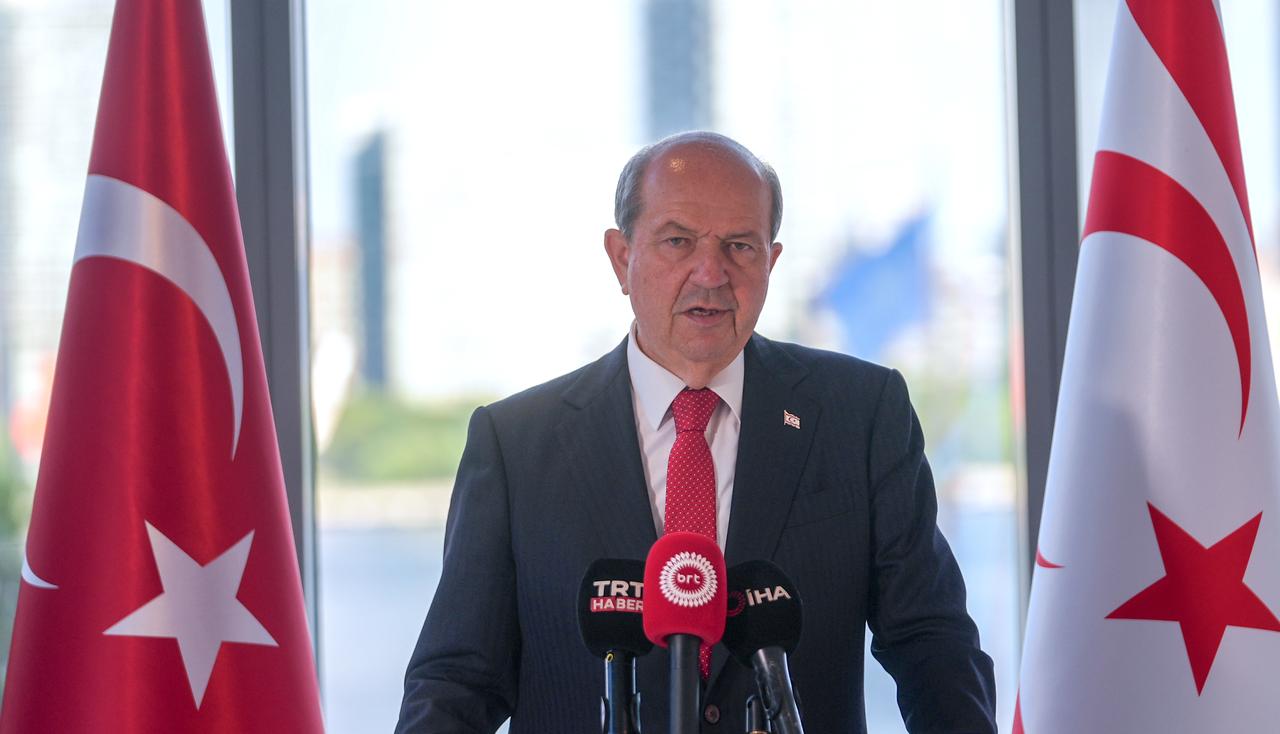
Cyprus has been mired in a decades-long dispute between Greek Cypriots and Turkish Cypriots, despite a series of diplomatic efforts by the U.N. to achieve a comprehensive settlement.
Ethnic attacks starting in the early 1960s forced Turkish Cypriots to withdraw into enclaves for their safety.
In 1974, a Greek Cypriot coup aimed at Greece's annexation of the island led to Türkiye's military intervention as a guarantor power to protect Turkish Cypriots from persecution and violence. As a result, the TRNC was founded in 1983.
The Greek Cypriot Administration entered the E.U. in 2004, the same year that Greek Cypriots single-handedly blocked a U.N. plan to end the longstanding dispute.
It has seen an on-and-off peace process in recent years, including a failed 2017 initiative in Switzerland under the auspices of guarantor countries Türkiye, Greece, and the U.K.